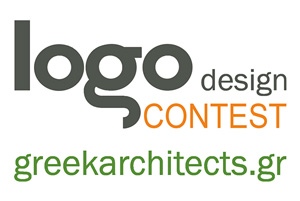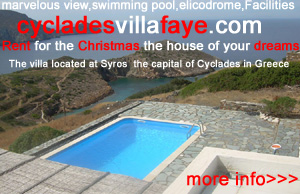STUDENTS PROJECTS
PROJECTS 2011
25 December, 2011
Living in the landscape
Object of this diploma project is a small environmental hotel in combination with botanical plantations in South Evia's landscape.
Students: Dampasi Stefani, Sideri Anna
Supervising professors : A. Kourkoulas, M. Mpampalou
National Technical University of Athens
Date : November 2011

Object of this diploma project is a small environmental hotel in combination with botanical plantations in South Evia's landscape. The hotels target is to prompt one to escape from everyday city life and restore his relationship with nature. This objective is achieved in two ways:
Firstly, by positioning the hotel in South Evia, where one can find one of the largest protected Natura areas of Greece, not far from the country' s capital. There, one can face nature in its primitive form and participate in all kinds of activities.
Secondly, bringing the guests into contact with the cultivation and use of herbs. Herbs were appreciated since antiquity for their healing abilities and visitors can obtain information on the specificity of each herb and their conversion from a plant into tea, tincture, ointment or any other way in which they can be used, as well as participate in activities concerning cultivation, depending on the time of their visit.
We chose to place the hotel in Grihesa beach, located outside but close to the protected area, providing easy access to trails both on foot and through the central arteries. The area' s features are the dry Cycladic landscape, the imposing grey schistose rocks and the strong northeast winds, as the beach is situated in the north part of South Evia, near Cavo Doro.
The hotel consists of botanical gardens, nine habitation units and a shared function building. This building houses a dual-use space that combines the restaurant and the "use of herbs" area, as well as a library.
The designs' main goal is to integrate the rocky landscape, so that landscape and building seem to have always coexisted and human presence is not easily distinguished. Moreover, our intention was that the visitor experiences the landscape, lives in it, without ever losing contact with earth and nature.
We, therefore, handled the intense terrain creating levels of plantations, influenced by the traditional technique of planting in similar landscapes, called "stone walls". Stone walls are a feature of the Cycladic landscape, and even though they are created by man, they seem to be part of it, they look natural. In the same way, we designed walls that hold the earth and hid the habitation units behind them so as not to be distinguished where nature ends and building begins. Moreover, seeking a direct and continuous relationship with nature we created a sequence of mass and void, interrupting the interior with enclosed gardens sheltered from the winds, places of peace and contemplation. The result is a creation of spaces where the visitor feels immersed in the landscape and does not lose the connection with the rock. Furthermore, the hotel is facing the dramatic north, with its stunning views of the skyline and the sea, keeping the main façade without openings. This intensifies the feeling that the landscape is not inhabited, but is merely levels of plantations.
Finally, inspired by the characteristic of the schistose rocks prevailing in the area we chose to build the walls from rammed earth, a technique that uses materials from the site, soil, stone and clay, to construct bio-walls whose final form are pressed layers of earth. These walls are a modern form of the traditional dry stone walls. It is said that the outcome of this technique is a handmade wall of solid rock.



















